The "last real Inka"
(reading blog 8)
Machu. fucking. Picchu
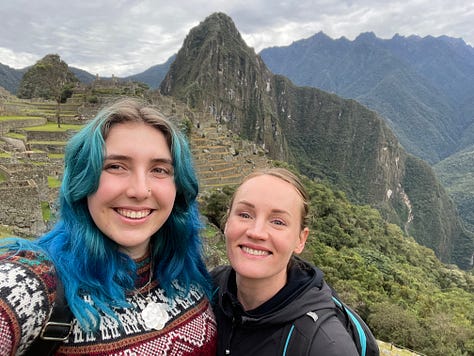
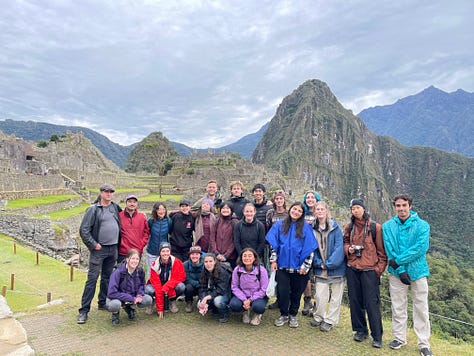
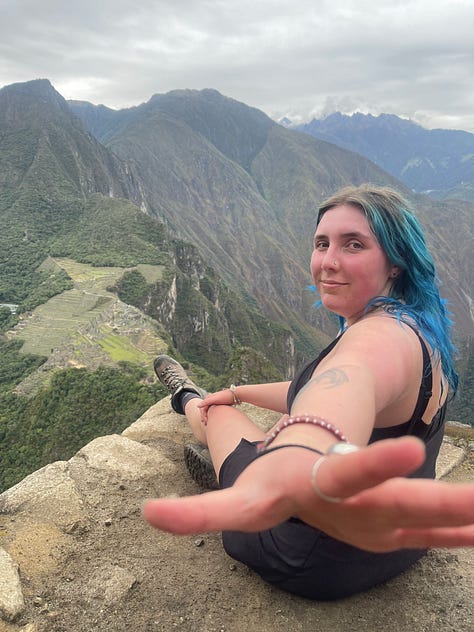
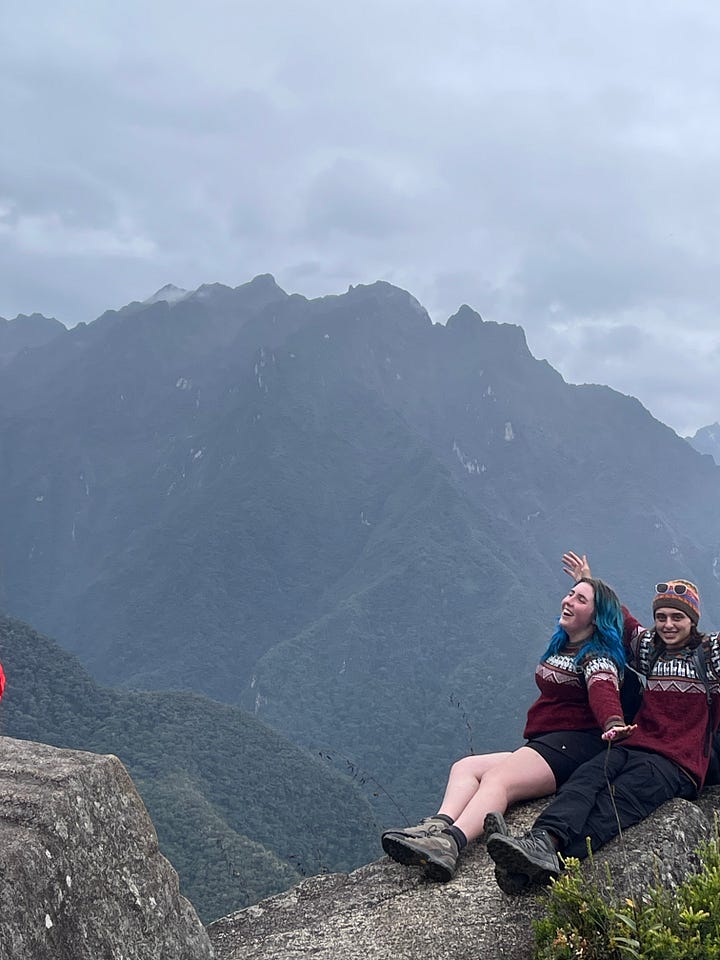
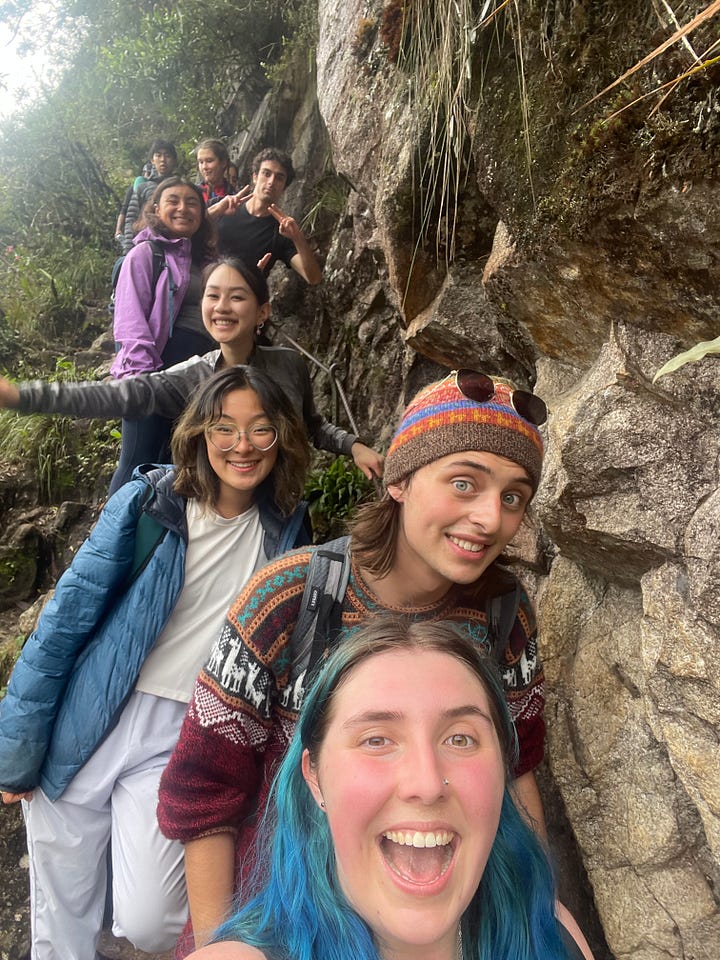
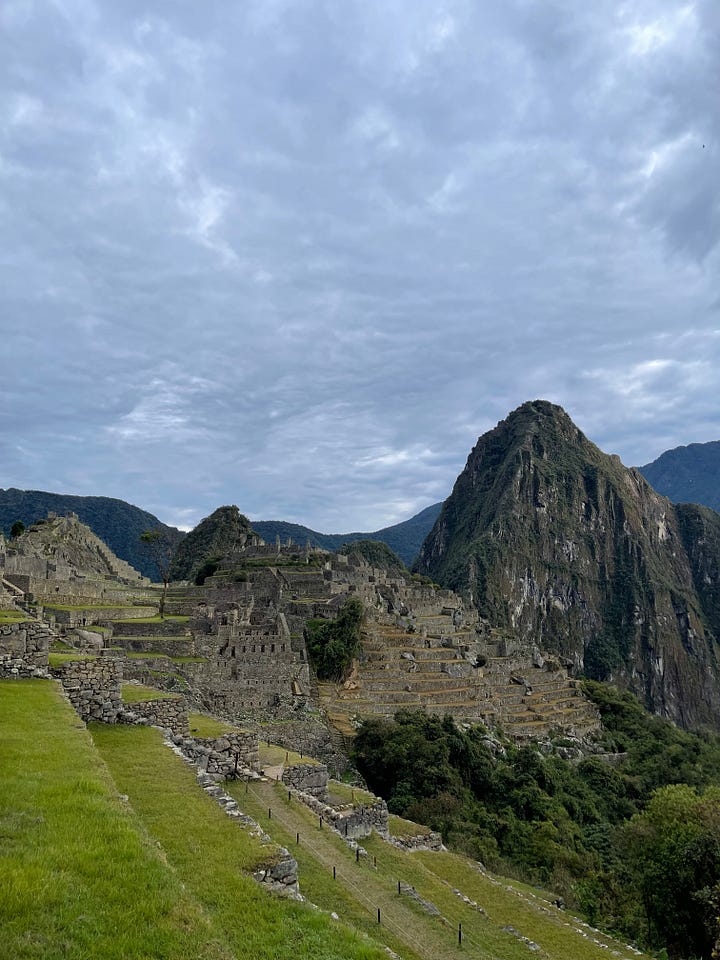
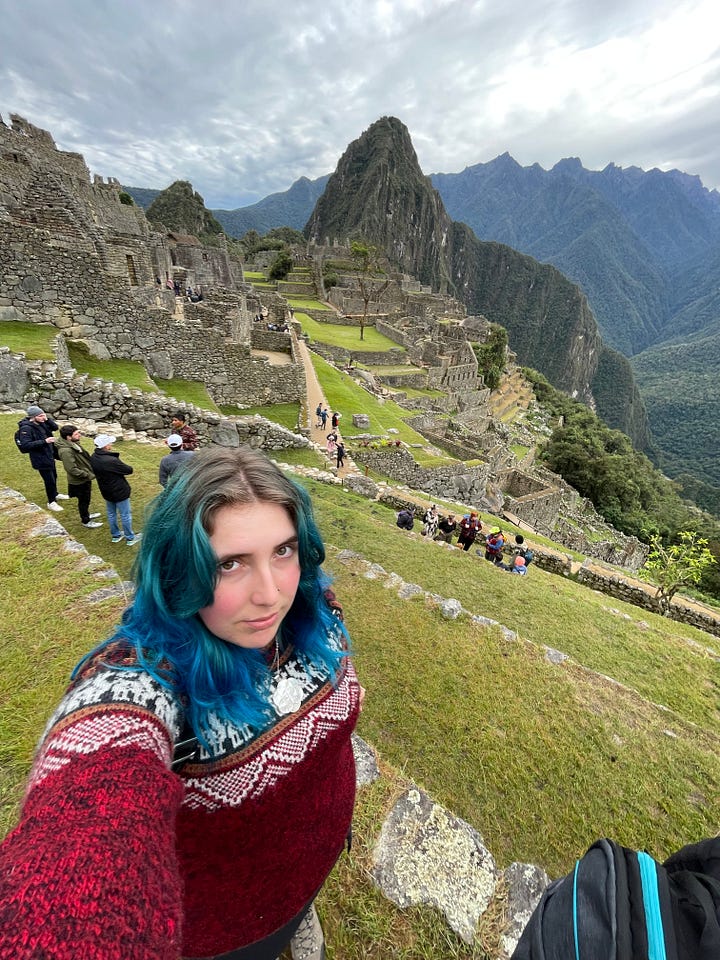
This is the first, and often only, place people asked me about when I announced I was going to Peru. The seventh wonder of the world is renowned and idolized.
Besides the beauty and wow factor Machu Picchu is also supposed to contribute to our Indigenous knowledge and learning. I was happy to read up on it and have some context going in. Though I guess part of the Indigenous learning is understanding the land operates as an entity of its own. No words written on a page can tell the story the land itself can tell.
The quote that stood out to me most and was ringing in my mind during our experience was “these actors employed tourism to promote an imagined, utopian Inca past that appealed to local and national elites as well as travellers and U.S. consumers” (Rice 47).
So let’s talk about the “real” versus fantasy Machu Picchu, from the perspective of an ideal consumer of the fantasy.
The image of a rediscovered Machu Pichu stood for more than a tourist trap. It meant the start of a booming tourism industry in Peru and a change to commercialize and commodify Indiegneous culture. It meant political change, an investment in different infrastructure and much more outside invested interest.
Hiram Bingham is a massive part of this narrative. Despite being a controversial figure, to say the least, it’s hard to tell the success story of Machu Picchu without him. He set the tone for this “discovery” narrative that the tourism industry plays up now. Bingham was the original actor as he played a role, lying to himself and others, about his discovery, and the supposed abandonment of the site. I’m not his biggest fan. Neither was Peru for a long time.
Our tour guide said that Bingham wasn’t all bad because he opened up this place for tourists like us and that they were happy about that. Admittedly that made me wanted to laugh but that felt invalidating. I mean if that’s the way he feels as an employee of the torusim industry and as a self described native than who am I to contradict him?
Based on the reading though this aligns with the idea that tourism caters to westerns with expendable wealth. I mean I can’t imagine it would be great for business if he said “tourism has a massive and detrimental impact on our archeological sites and has created a lot of space for the exploration of Indigenous people.” That’s not to say Machu Picchu is bad as a place, more just an interesting example of how the narrative told influences the value.
Slowly catching up on my posts,
Orla


Does Machu Picchu have good press? Definitely. But I still wonder if we should "follow the money" to better understand what's going on there. Let me be a little cynical. We can use any adjective we can think of, like "living museum" or "wonder of the world"... in practical terms, the entire "MP experience" is private and owned by monopolies that won't let it out of their hands. Rice's book is key to understanding the process. I'm not sure everyone involved is aware of all the nuances of "ownership" of the place. I'm not, of course. That's why I have more questions than answers. (But it is not the pristine navel of the "Indigenous experience" that many seek.)
Machu. fucking. Picchu indeed, Orla
I still don't know what to think about Machu Picchu. On one hand, as a pure spectacle it is one of the most amazing things i've seen. I don't blame people for considering it one of the wonders of the world, I don't reject that. However on the other hand, the fact that Hiram Bingham, some well-off outsider ended up having so much sway in shaping the national identity, or perhaps the face of Peru. If that isnt taking away indigenous agency i dont know what is. Yknow cause like, as we learned there was likely nothing particularly special about Machu Picchu when it was in use. I dunno, weird thing to think about.